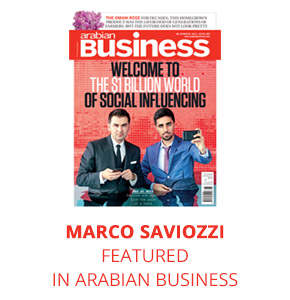Jobs in finance conjure up images of immense wealth, stellar success and the high life. Thanks in part to Hollywood, brokers embody that image more than anyone. And there’s some truth behind it. There are plenty of high-profile figures in the industry who have amassed enormous wealth. A poll run by The Guardian saw brokers and traders of all persuasions topping the list of highly paid jobs in the UK in 2016.
In the UAE the broking profession is growing apace. Dubai, for example, is developing both the breadth and depth of its capital markets, encouraging initial public offerings and building trading platforms for commodities and derivatives. With around 50 brokerages jostling for space on the ADX and DFM, it’s a busy time for brokers in the region, full of both competition and opportunities.
So let’s look at what it takes to turn opportunity into tangible wealth in these challenging but exciting times.
What kind of broker are you?
It’s not easy to pin down what an average financial broker in the UAE can make. Roles are usually advertised with a wide salary range, and the importance of commission and bonuses (which depend on your success) makes it hard to arrive at a ‘one size fits all’ figure for this kind of job.
But then it’s not a ‘one size fits all’ job. A broker can be many things, and while some focus on equities, you could just as easily be an FX specialist or working in commodities or debt markets. Equally, the money you make can vary based on whether you’re providing an execution-only service, a discretionary service, or going a step further and providing advice.
The company you work for can affect your earnings too. Large, established full-service brokers like Bank of America Merrill Lynch offer prestige and a larger client book, but there’s a trade-off between such advantages and facing a long, challenging period while you make a name for yourself. A more dynamic, independent brokerage may require more elbow grease at the start, but can offer more rapid progress.
From the start, you need to think about the long game
The opportunity to earn more depends on a set of key skills that includes being a self-starter, willingness to work extremely long hours and bags of perseverance. You’ll also need communication skills because the foundation of your future earnings will be your ability to network and build up a client base, nurturing the reputation to go with it. That means contacting and retaining leads, capitalising on referrals and impressing your clients with your insights into what’s going on in the markets. Importantly, what we’re describing is a long-term approach – being a broker may make you rich, but it’s not a ‘get rich quick’ scheme.
The opportunity to earn more depends on a set of key skills that includes being a self-starter, willingness to work extremely long hours and bags of perseverance.
Most financial brokers don’t spend their day taking big directional punts on their own account, or even on behalf of their firm, but are instead matching buyers and sellers for a commission. In other words their success or failure hinges more on the volume of trading than whether the market is going up or down. Of course trading volume – the level of buying and selling activity – can itself be impacted by big events in the market. But it’s true to say that most brokers in the financial markets today are not depending on ‘the big deal’ to make their money: they’re depending on great client relationships, giving solid market insights to those clients, quick thinking, resilience and a mountain of hard work.
Instinct and the big bet
That’s not to say most brokers don’t have an eye on making a big deal if the opportunity were to come their way. One trader with an eye for such a deal is Hungarian-born hedge fund manager George Soros who has a net worth of USD 25.2bn. It’s even more impressive when you consider that he worked as a railway porter and waiter to put himself through the London School of Economics (LSE), before getting his first break in finance.

The key word with Soros is instinct. He places major bets on the direction of financial markets. Most famously, in 1992 he bet against the British pound, bagging USD 1bn and earning himself the nickname ‘The man who broke the Bank of England’.
The problem with this approach is that it’s hard to emulate. Unique ability is by definition a one-off, and it would be dangerous to rely entirely on instinct. So what can we learn from Soros? According to one biographer he’s made a career out of ‘capitalising on the emotional capacity of market influencers to change the opinions and investment decisions of others’. In other words, Soros understands the psychology of markets. The lesson for the ambitious broker is learning how to read and interpret sentiment to spot opportunities.
The lesson for the ambitious broker is learning how to read and interpret sentiment to spot opportunities.
The defensive and offensive game
Still, spotting opportunities is only half the battle. You need to be able to identify risks too. A good example is the elite trader Adam Guren, one of few people to make a profit during the 2008 crisis. Guren’s strategy is based on scrutinising global markets, apparently without sleep. He starts each day before the markets open, checking for news and opportunities in the stocks he follows. But as Guren notes, risk is critical. ‘One of the keys to success is measuring risk-reward. I’d say I do a good job of measuring risk. It’s probably one of the main reasons why I am successful at trading.’
Guren shows that you need to be adept at spotting the potential sinkholes as well as identifying profitable trades; and that rigorous analysis, a prodigious work ethic and a talent for switching off emotions could make you a lot of money.
But apart from thinking long and hard about how many hours you’re able (or want) to put into your job, it would be a mistake to conclude that obsessively poring over market reports will always equate to success.
Reading between the lines
In fact, FX trader Gilbert Mendez would argue that while it’s important to read the stats, appreciating the psychology behind them is paramount. Mendez built a ‘black box’ trading model for the global FX currency market and was picked up by SMB Capital where he quickly became head trader. Mendez explains that he trades the flavour of the day, making decisions based on medium time-frame charts, but insists his real strength as a trader is the ability to ‘read the tape’, to understand the psychology behind the charts.

While Mendez isn’t exhibiting the finger-in-the-air proficiency of Soros, neither is he basing his entire approach on data like Guren. The lesson that emerges is familiar: being a successful broker or trader doesn’t hinge on excelling in one area to the exclusion of others. The smart approach is to understand the whole picture. You can’t neglect any aspect of the job.
Giving yourself time to regroup
And don’t neglect yourself. Trading prodigy Jan Sramek arrived in the UK aged 17, becoming one of the world’s top three traders by the age of 23. With a CV that includes Cambridge and the LSE there’s no doubting his academic credentials – or his professional prowess. He was the youngest person ever to appear on the Financial News 100 Rising Stars of Financial Markets Under 40 list.
In his co-authored book Racing Towards Excellence, Sramek suggests that being successful isn’t all about work, but instead comes from investing in four ‘accounts’ – emotional health, material wealth, mental health and physical health. In a bleak warning, he notes that ‘we have yet to meet a single person who having suffered through a heart attack or other debilitating illness would not have chosen a different strategy.’
In an earlier article we looked at the importance of taking downtime to become more engaged and better equipped to do your job effectively. No amount of devotion to the professional cause will pay off unless you’re taking care of your mind and body too.
No amount of devotion to the professional cause will pay off unless you’re taking care of your mind and body too.
Cautionary tales and magic bullets
While we’ve looked at some major successes, it’s important to temper that with what could go wrong. There are plenty of cautionary tales of traders making and losing millions in quick succession. There are no guarantees. You need Plans B and C as well as Plan A, and audacity alone isn’t a strategy. Sooner or later, you risk losing your footing.
There’s no magic bullet to amassing wealth as a broker and while it’s not a ‘get rich quick’ scheme, there’s the opportunity to get rich over a period of time, if you’re able to develop and apply the key skills, while building client relationships and exercising control. Playing the long game and sticking around are important. Fortune is fickle and settling in for the long-term gives you time to build your reputation and client base, and to recover and learn from mistakes.
Perhaps the most important lesson is that getting rich shouldn’t be your primary motivation. Being a broker is a rewarding, varied career, and if making money is your sole ambition it could turn out to be a hollow experience. Being the richest and being the best are not the same thing, but the more you understand your job at a granular level, the better placed you’ll be to profit from it.
About the author: Marco Saviozzi, CEO
Marco attained an MBA in Finance from the IEMI, Geneve, before starting his career in corporate sales at Xerox. He would eventually move on to French firm Viel (now Tradition), before being headhunted by prestigious London firm ICAP, where he was brought in as head of the French Franc IRS Desk. He quickly rose to become a part of the management committee as Co-Head of the Euro Desk, and later moved to the New York office to head up the Equity Derivatives team. After 14 years at ICAP, in 2007, he opened Newedge – a Calyon / Societe Generale brokerage arm in Dubai. Two years later he would go on to form GMG as a co-founder with several past colleagues. When he is not facilitating trades on behalf of clients, Marco can be found on the golf course or watching his favourites sports – Formula 1 and horse racing.


